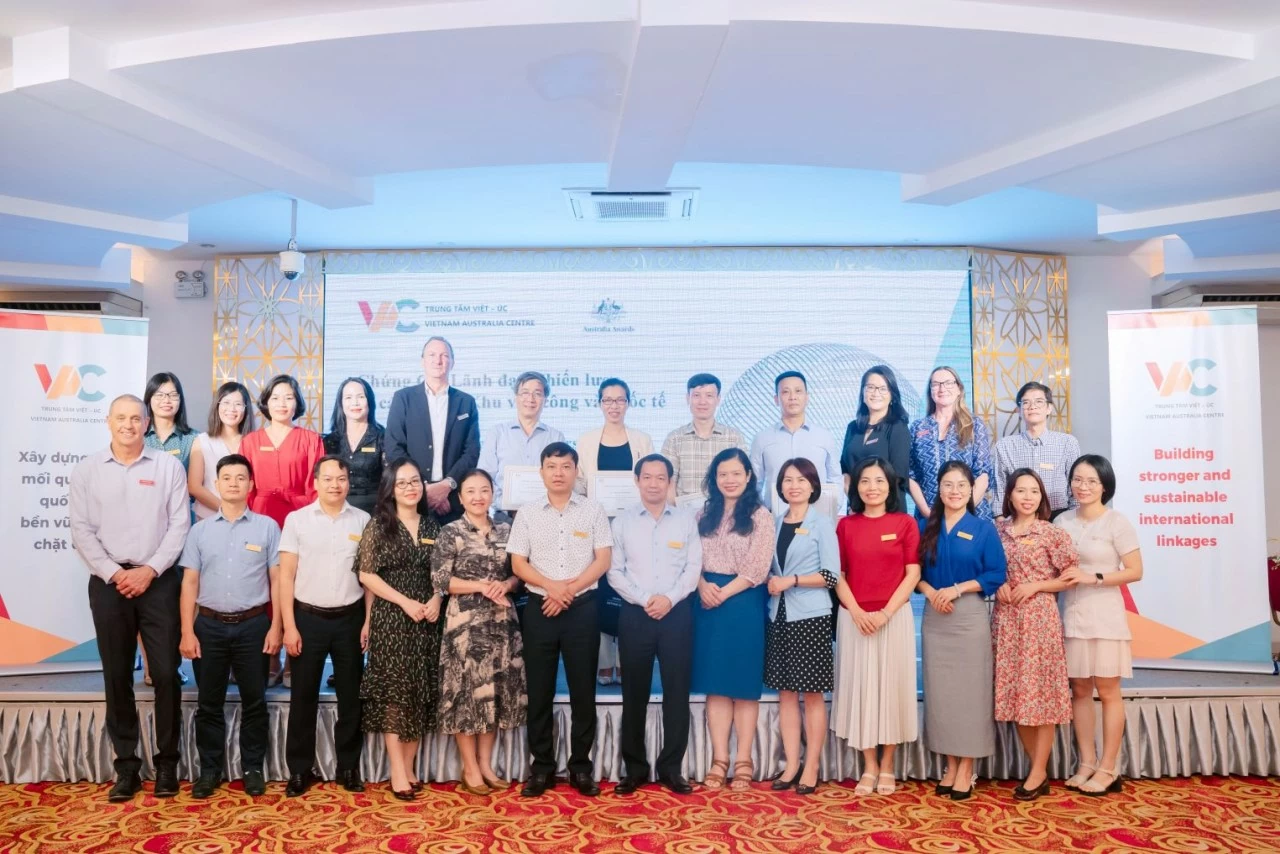
Welcoming second cohort of the Public and International Affairs Strategic Leadership Certificate
Latest
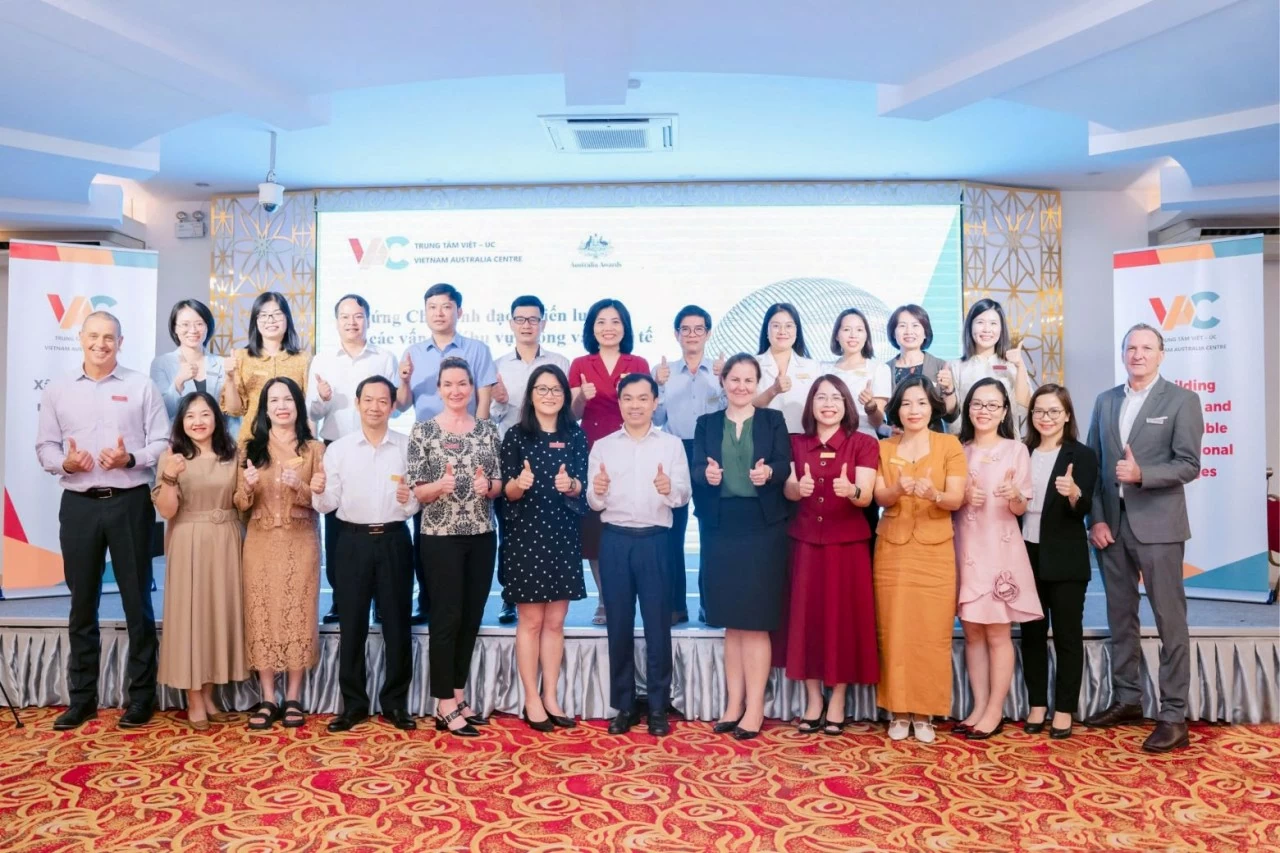 |
| The opening ceremony of the “Public and International Affairs Strategic Leadership Certificate” program in Hai Phong on September 30. (Photo: VAC) |
16 lecturers and officials from different departments in Ho Chi Minh National Academy of Politics, Commission for External Relations of the Central Committee of Communist Party of Vietnam, Office of the Government, and the Ministry of Foreign Affairs, attended the opening ceremony of the “Public and International Affairs Strategic Leadership Certificate” program in Hai Phong on September 30.
This is the second time this short-term course, funded by the Australian Government through the Australian Department of Foreign Affairs and Trade for Vietnam and organised by the Vietnam-Australia Centre (VAC) in close cooperation with Curtin University.
This year, the course is being delivered in both Vietnam and Australia, aiming to equip public sector leaders with strategic leadership skills, and opportunities to establish meaningful relationships, interact, and collaborate with individuals and organisations in Australia and Vietnam.
The program delves into the challenges and opportunities in public sector leadership around four pillars: Leadership with local and global perspective; driving sustainable economic growth with environmental responsibility; leadership in the digital age; and promoting social inclusion.
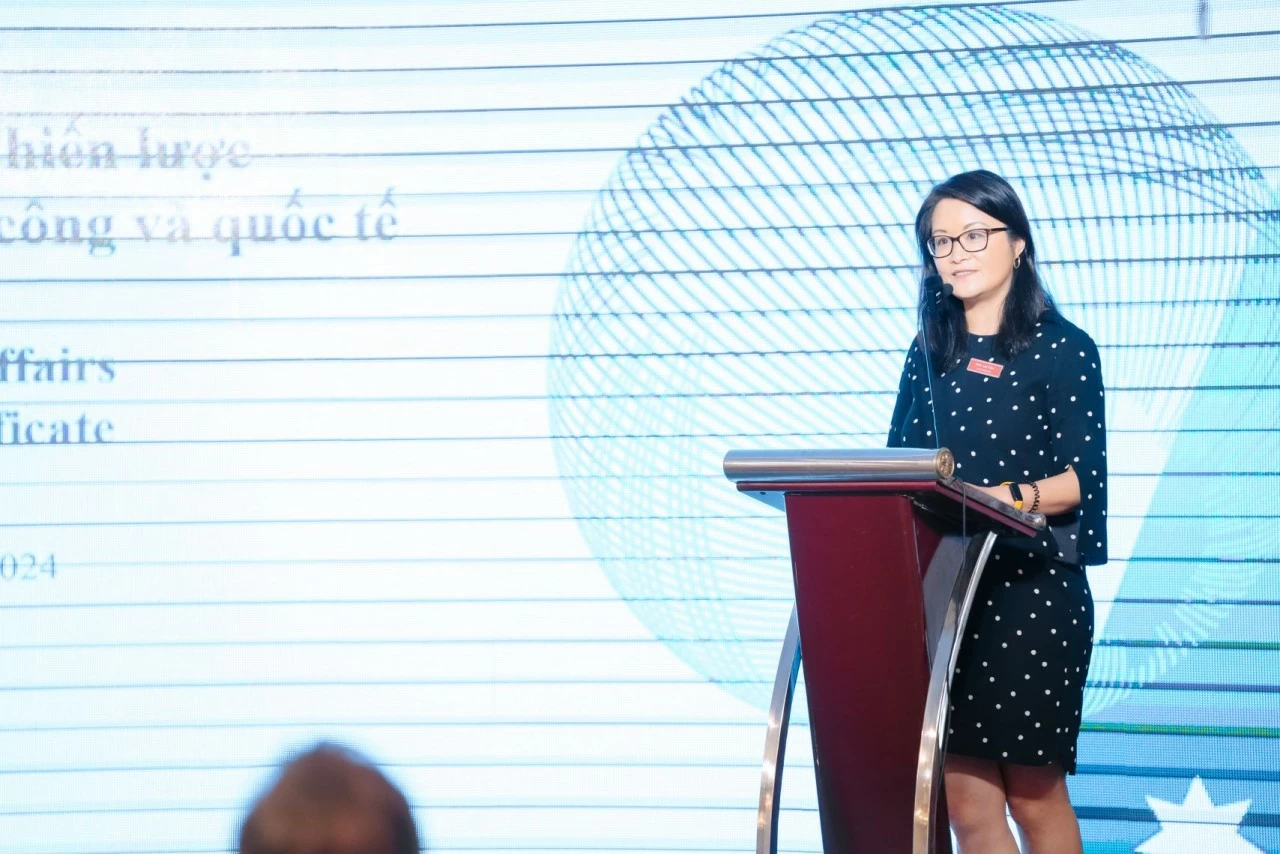 |
| Professor Amy Tian speaks at the opening ceremony. (Photo: VAC) |
In the opening remarks, Curtin University Council member, Professor Amy Tian highlighted that these pillars are closely linked to Vietnam’s Socio-Economic Development Plan, the National Master Plan and the United Nations Sustainable Development Goals. The delivery of the course “ensures that leadership efforts will have a significant and strategic impact”.
The program takes a peer-learning approach, delivered by global experts and senior executives from both Vietnam and Australia’s public sectors and industries. Therefore, Professor Amy Tian believes that “the knowledge, experiences, and connections you make will empower our leaders to create meaningful change in your organizations and communities”.
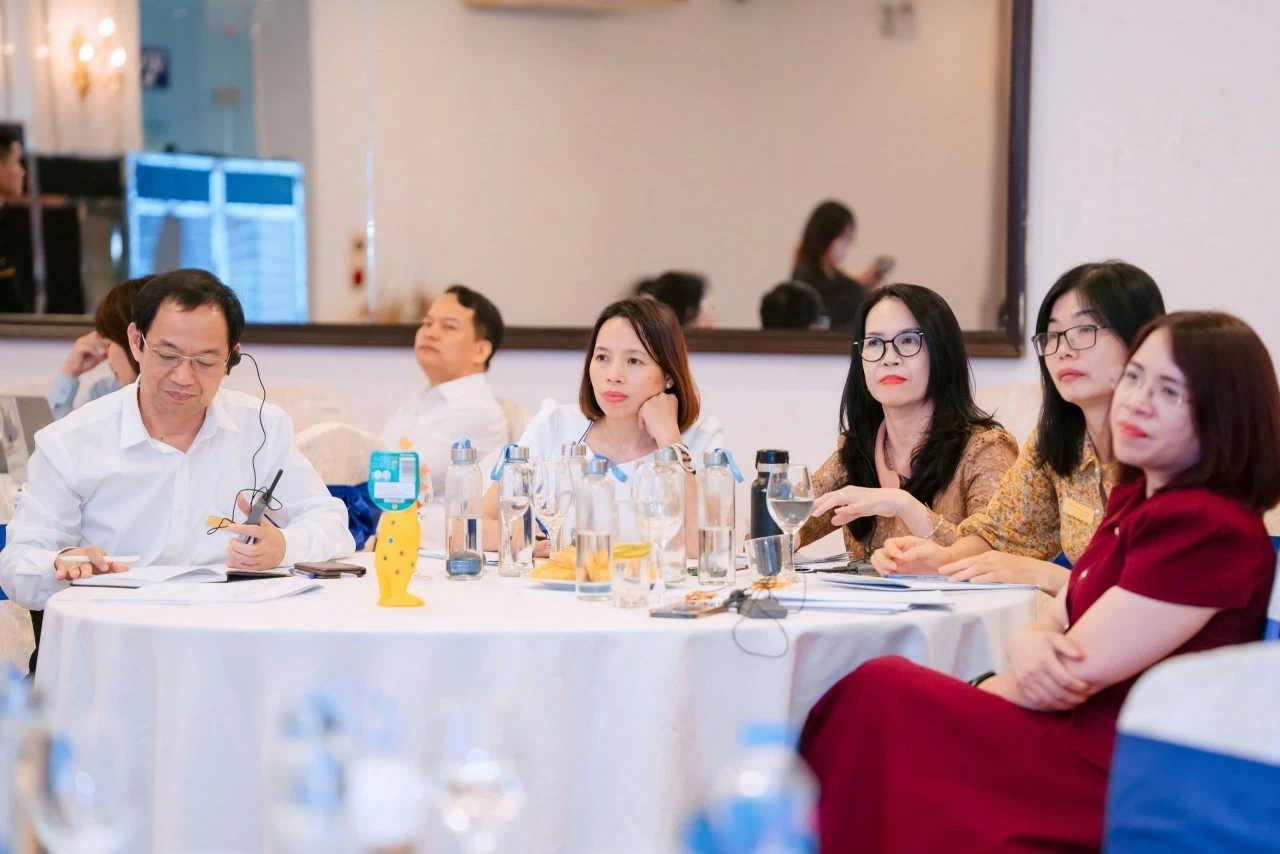 |
| Participants at the discussion session. (Photo: VAC) |
Following the success of the first course in 2023, the 2024 program continues to promote knowledge exchange through comprehensive training activities and field trips to high-impact institutions in both Vietnam and Australia.
Professor Amy Tian added that the course has been carefully designed to align with the Australia-Vietnam 2023 slogan: People, Partnership, and Prosperity, in line with Curtin University's vision "Working in partnership, we will make a difference for people and our planet."
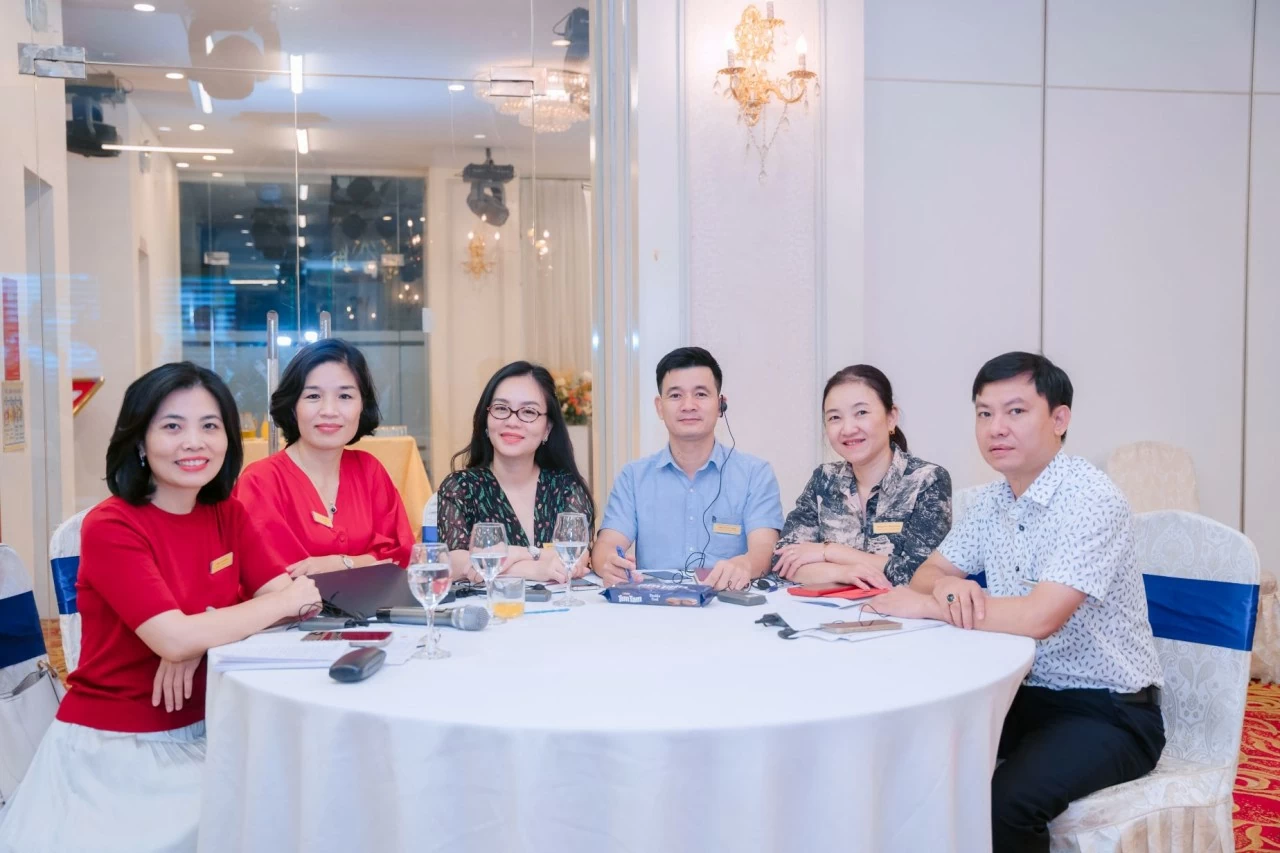 |
In addition to the on-boarding, the course journey includes three main parts: Introduction, Immersive Journey and Final Symposium. During the introductory sessions in Hai Phong from September 30 to October 2, program participants engaged in multiple discussion sessions across different topics, including “Leadership with Vision”, “Leadership for Sustainable Development” and “Leadership – A Global Perspective”. Participants also had the opportunity to interact with alumni of the 2023 course and visit the VinFast factory in Hai Phong city.
The 50th anniversary of diplomatic relations between Vietnam and Australia in 2023, followed by the Comprehensive Strategic Partnership announced in March 2024, mark significant milestones in this evolving partnership, underpinned by strategic trust, mutual respect, and shared ambitions. The “Public and International Affairs Strategic Leadership Certificate” short course is a testament to the enduring dedication of the Australian Government through Department of Foreign Affairs and Trade, Australia Awards, Aus4Skills, VAC, together with Vietnamese and Australian partners, developed in collaboration with Curtin University, to promote meaningful advancements within public sector governance and build robustinternational networks for sustainable socioeconomic development. |




